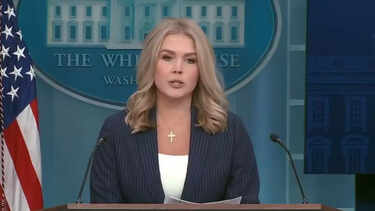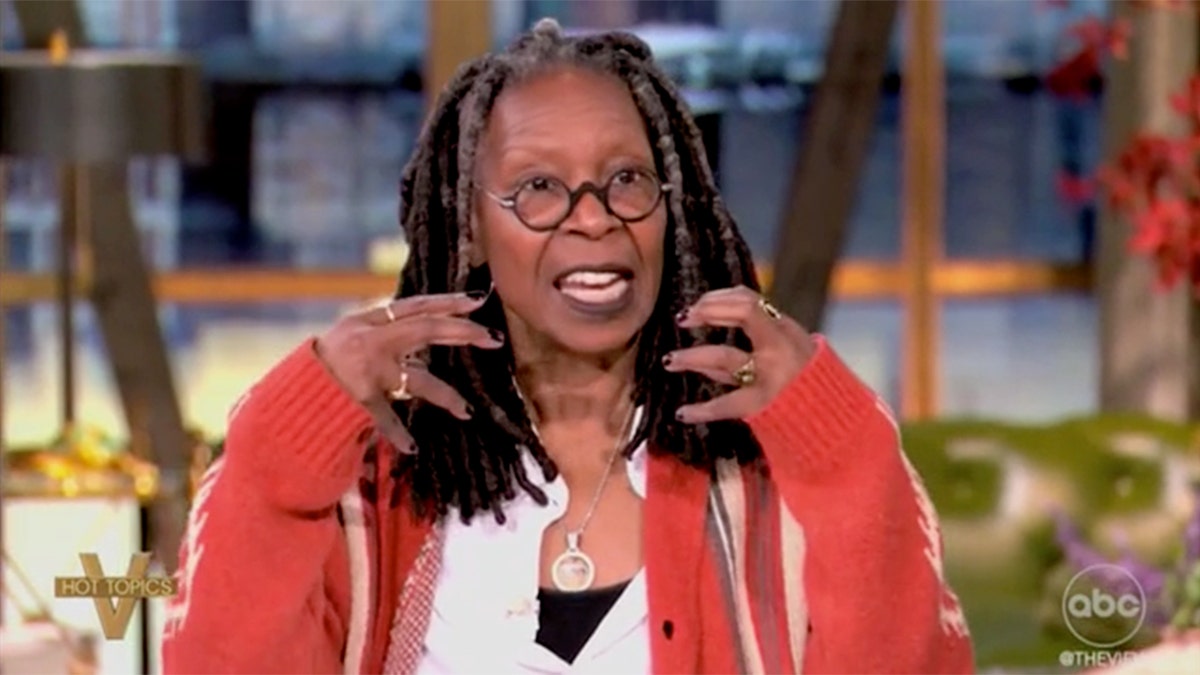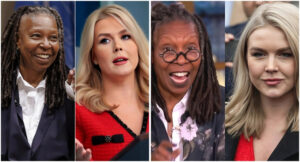The Power of Humor and Perspective in Media Discourse
The scenario of Karoline Leavitt humorously taking aim at Whoopi Goldberg and “The View” during a live TV appearance, and the subsequent buzz and debate it generated, offers a compelling framework for exploring the dynamics of media discourse, the role of humor in challenging perspectives, and the ongoing conversation about relevance and change within the media landscape.

This essay will delve into the positive aspects of such a situation, focusing on how it highlights the importance of diverse voices, the potential for humor to spark critical reflection, and the need for media to evolve and remain relevant to its audience.
In today’s fast-paced media environment, where opinions and personalities often clash, humor can be a powerful tool for cutting through the noise and prompting genuine engagement.

Karoline Leavitt’s decision to use humor to critique Whoopi Goldberg and “The View” suggests a strategic approach to capturing attention and initiating a conversation. Humor, when used effectively, can disarm, provoke thought, and create a space for dialogue where differing viewpoints can be considered.
The fact that Leavitt’s comments left audiences “buzzing” indicates that her approach resonated, at least to some extent. It suggests that she tapped into an existing sentiment or sparked a new way of looking at the dynamics of the show. Whether viewers agreed or disagreed with her, she succeeded in generating a reaction and contributing to the ongoing conversation surrounding “The View.”
The critics’ claim that Goldberg is “well past her sell-by date” introduces another important dimension to this scenario. It highlights the inherent challenge faced by long-running media institutions: how to stay relevant in a constantly changing cultural landscape.
What was once fresh and engaging can, over time, begin to feel stale or out of touch to some viewers. This is not necessarily a negative reflection on any individual, but rather an acknowledgment of the natural evolution of media and audience expectations.

This debate over relevance can be a positive force for change. It can prompt media outlets to re-evaluate their programming, consider new perspectives, and adapt to the evolving needs and interests of their audience. It can also create opportunities for new voices and formats to emerge, enriching the media landscape and offering viewers a wider range of choices.
In the context of Leavitt’s humorous critique, the discussion about Goldberg’s relevance can be seen as part of this larger process of media evolution. By challenging a long-standing figure and a well-established show, Leavitt is contributing to the conversation about what it means to be relevant in today’s media environment. She is, in effect, asking important questions about who gets to shape the narrative, whose voices are heard, and what kinds of perspectives are valued.
Moreover, this scenario highlights the importance of diverse voices in media. Karoline Leavitt, as a commentator with a distinct perspective, brings a different energy and viewpoint to the public discourse. Her willingness to challenge established figures and institutions, even with humor, can be seen as a valuable contribution to a healthy and vibrant media landscape. A diversity of voices ensures that a wider range of ideas are considered, preventing any single perspective from dominating the conversation.
The use of humor in this context also deserves further consideration. Humor can be a powerful tool for social commentary, allowing individuals to address sensitive or controversial topics in a way that is both engaging and thought-provoking.
By framing her critique of Goldberg and “The View” with humor, Leavitt may have made her message more accessible and palatable to a broader audience. However, humor can also be subjective, and what one person finds funny, another may find offensive. This highlights the importance of considering the context, the audience, and the intent behind the use of humor in public discourse.
Ultimately, the scenario of Karoline Leavitt’s humorous critique of Whoopi Goldberg and “The View” offers a positive message about the importance of diverse voices, the power of humor to spark reflection, and the ongoing need for media to adapt and remain relevant. It reminds us that media is not static but rather a dynamic and evolving space where different perspectives clash, ideas are debated, and the conversation about what constitutes relevance is constantly being renegotiated.






